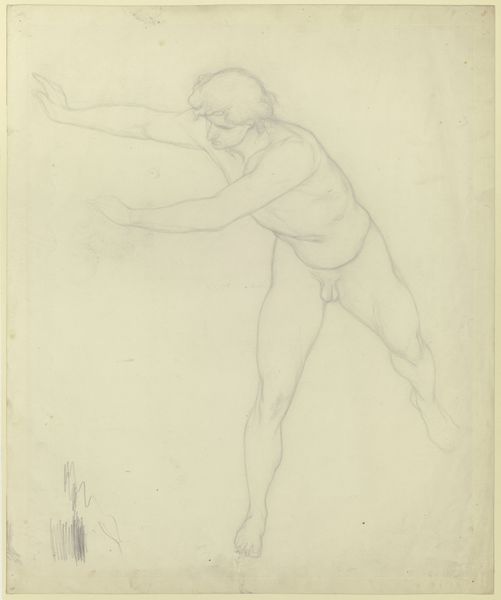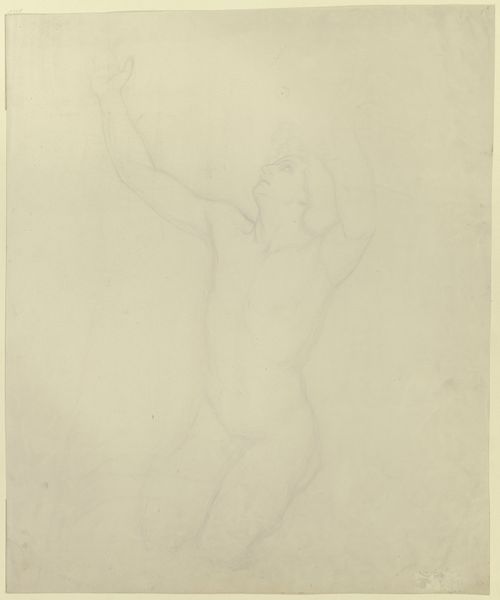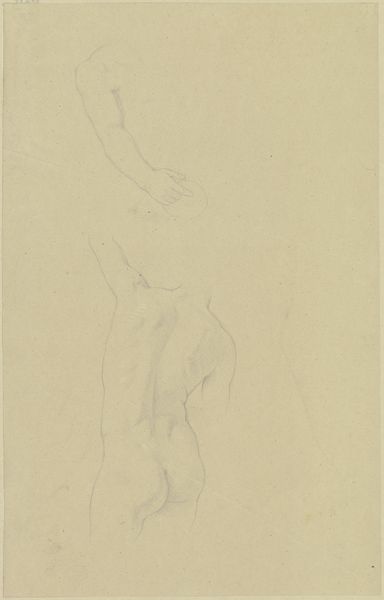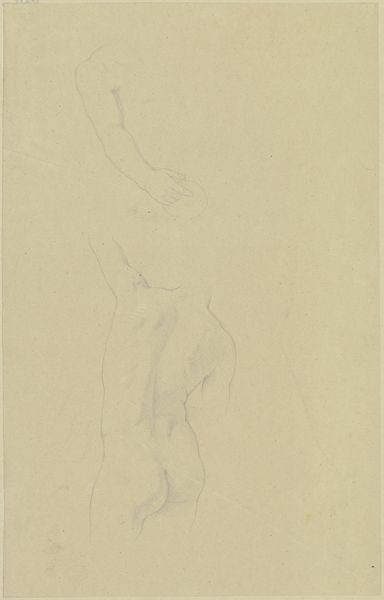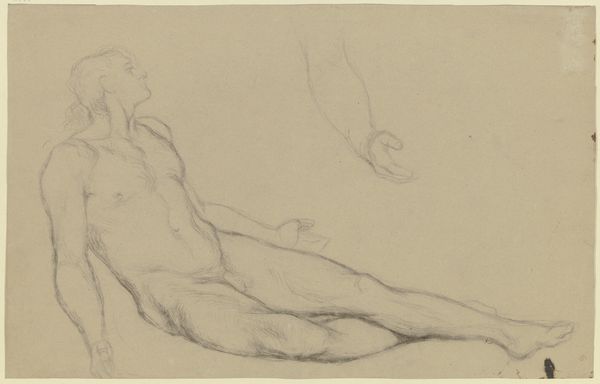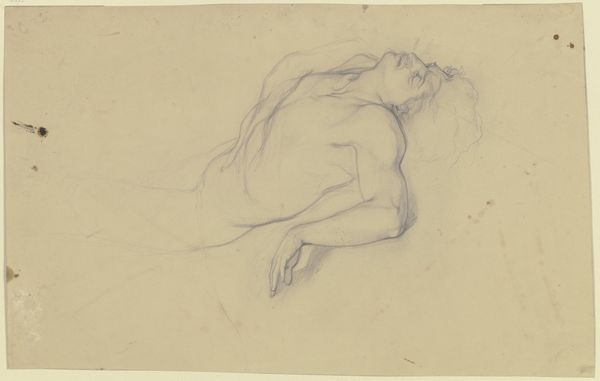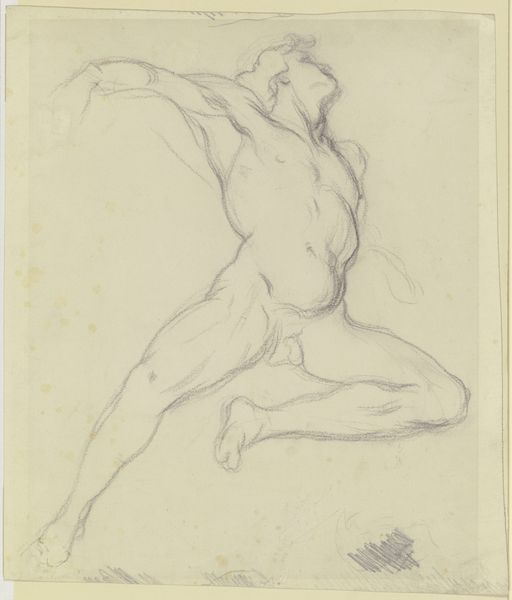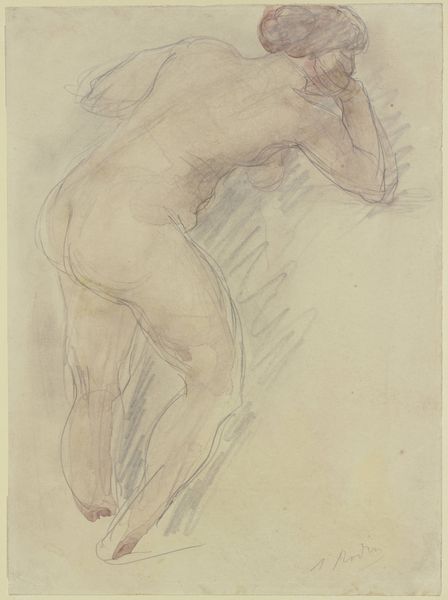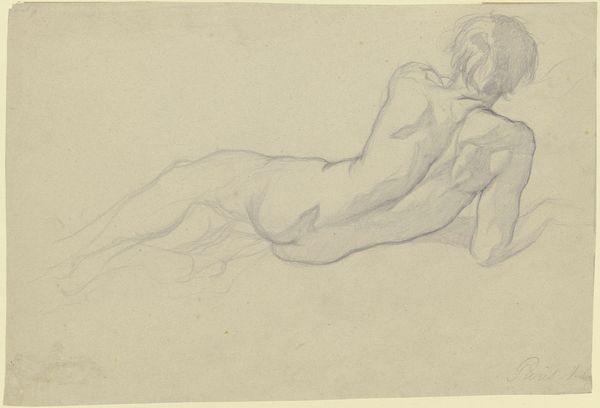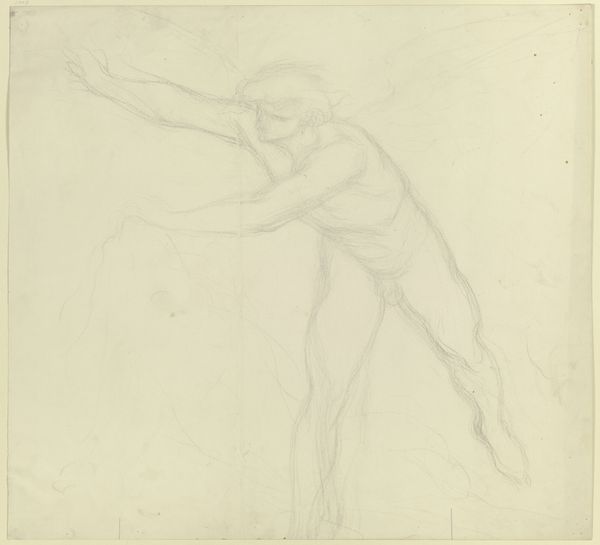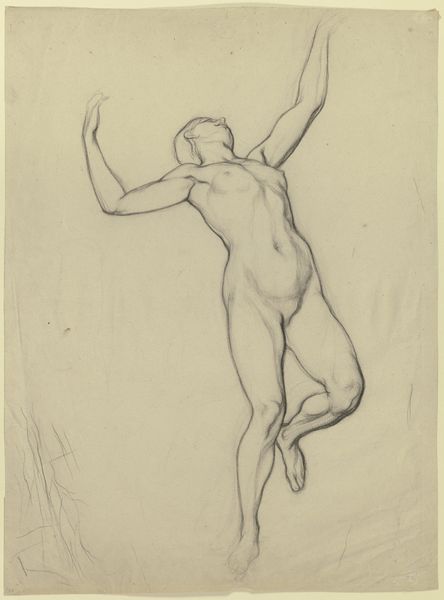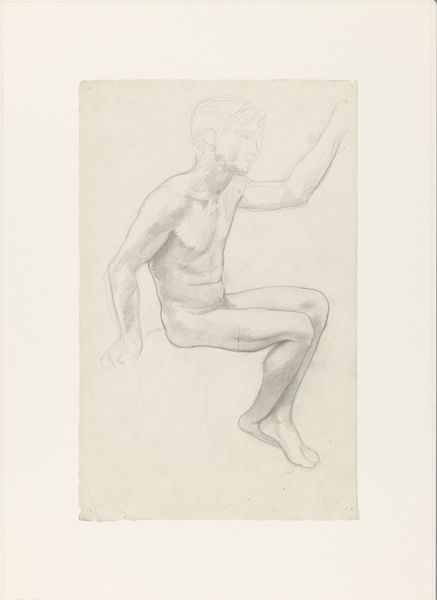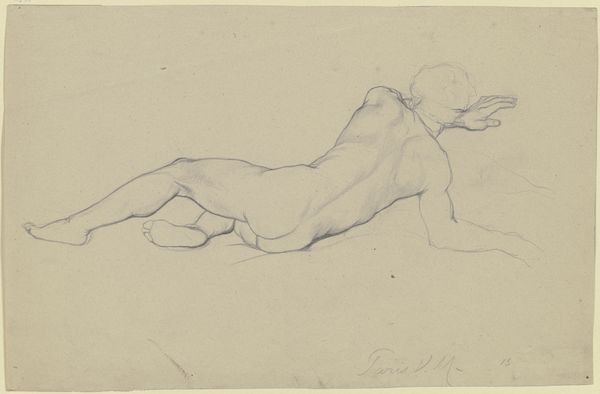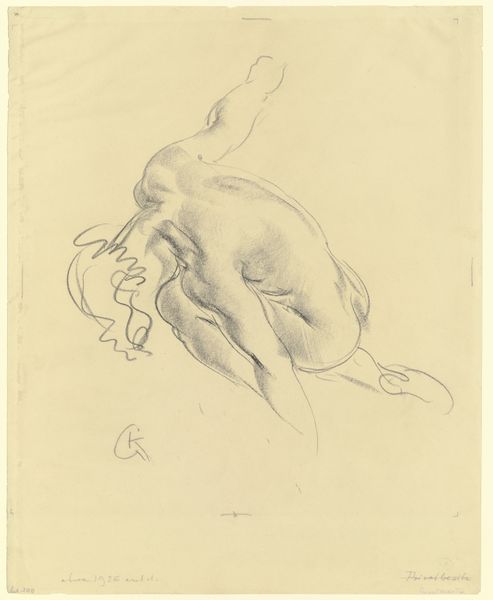
Kniender männlicher Akt in Vorderansicht, in leichter Vorbeugung die Arme ausgebreitet
0:00
0:00
drawing, paper, graphite
#
drawing
#
figuration
#
paper
#
pencil drawing
#
graphite
#
academic-art
#
nude
Copyright: Public Domain
Victor Müller’s nude drawing, whose date is unknown, can tell us much about the artistic training and social expectations in 19th-century Germany. The work shows a male nude, kneeling with arms outstretched. In its naturalism and celebration of the human form, the drawing draws on the classical tradition that was the backbone of academic art education in Europe at this time. Artists like Müller studied ancient sculpture to perfect their craft. But such traditions were also inherently social. The naked human body had to be studied in the studio, away from the eyes of those considered not to be sufficiently educated. The institutions of art thus served as gatekeepers, deciding who had the power to look, and who was subject to be looked at. These power dynamics also intersected with class, gender and other forms of social control. By researching the history of art academies and the place of classical art in 19th-century society, we can see how even a simple sketch can reveal complex structures of power.
Comments
No comments
Be the first to comment and join the conversation on the ultimate creative platform.
